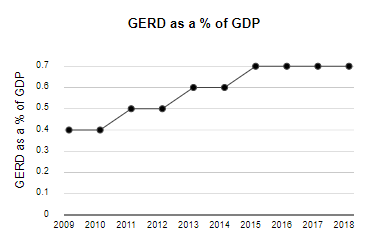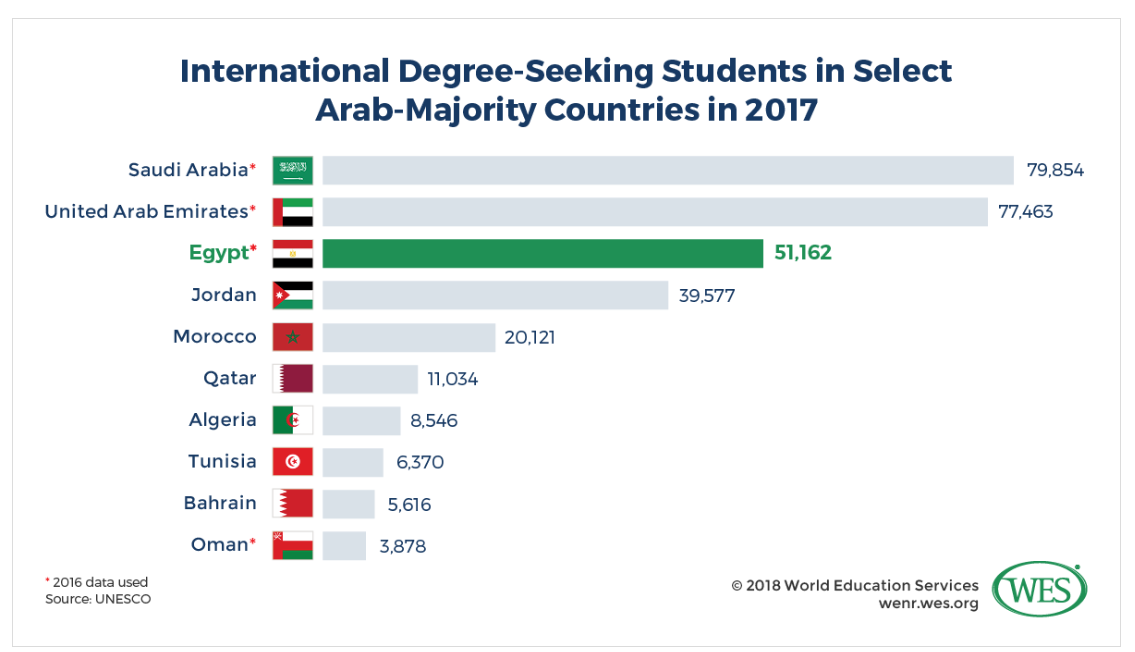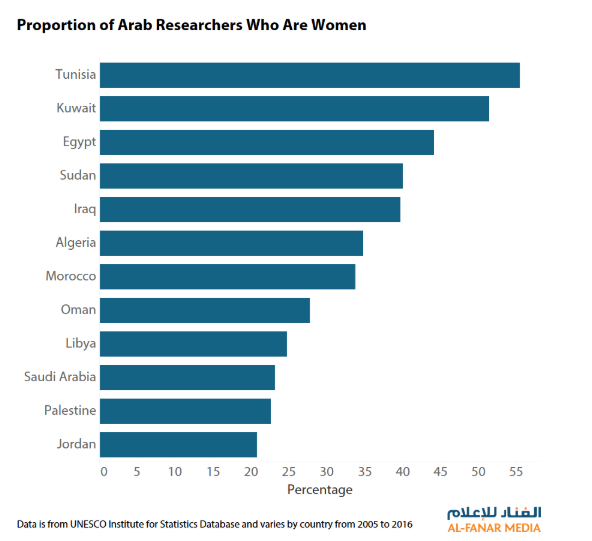The country is a centre for research and education in the Arab region, but can it keep up the growth?

In the Arab region, Egypt has long been a linchpin for research and education – its universities popular with its neighbours, its researchers frequent collaborators abroad. Now, with the COVID-19 crisis hitting its economy, can it keep improving its standing?
The country has a base in science and technology. In one benchmark, maintained by the World Economic Forum, the country’s ranking in innovation performance has climbed 13 places since 2017, ranking 92nd in the world last year. According to Egypt Vision 2030, a sustainable development strategy launched in 2016, the government is aiming to climb to rank 60th in 2030.
Of course, those aren’t knock-out numbers compared to China, India or bigger R&D players – but for a country that can date its scholarship back 5000 years, they reflect a concerted effort by successive governments to scrape together extra funding and more-focused strategies. For instance, in 2007 the government launched a Science and Technology Development Fund.
As the global economy is taking a hit because of COVID-19, so is Egypt. The International Monetary Fund said 11 May that the pandemic has “drastically disrupted people’s lives, livelihoods, and economic conditions in Egypt. The global shock has resulted in a tourism standstill, significant capital flight, and a slowdown in remittances.”
Still, the country is doing better than some, with the IMF forecasting a slowdown in economic growth rather than a deep recession. Thanks in part to $2.7 billion in IMF bail-out funding, it currently expects Egyptian gross domestic product to grow at 2 per cent this year, down from 5.6 per cent in 2019. How that will affect the country’s investment in universities and research is not yet clear.
Its region, Middle East and north Africa, is large and complex. According to the UNESCO 2018 Science Report, there are different levels of development both within and between the region’s countries. The tendency previously has been to focus solely on R&D development led by the state, without including the business sector. The general trend today however is to pursue policies to develop a knowledge economy as a way to provide employment for a growing population while achieving sustainable development goals. Several Arab countries have therefore started to reform their higher education system, including a rewrite of the academic curriculum, and to develop more technoparks, among others.
One of the goals of Arab countries, including Egypt, is to raise R&D spending to 1 per cent of gross domestic product. Since 2010, Egypt has gone from spending 0.43 per cent of GDP to 0.71 per cent in 2016. That’s higher than other countries of the region, spending 0.3 per cent to 0.5 per cent. By comparison, the EU devoted 2.25 per cent to R&D in 2018.
Strengthening regional and international ties
For Egypt, international collaboration in R&D has long been prioritised. According to Nature Index, the country’s most-frequent research partner is the US. For that, the U.S.-Egypt Science and Technology Joint Fund has provided grants for more than 500 collaborative projects in different fields such as health, engineering and water. The US is followed by Germany, China and the UK as most-frequent research partners for Egypt.
The partnerships often happen in big, multilateral projects. For instance, Egypt is a partner with the EU and others in the region on SESAME, a synchrotron based in Jordan. The Eastern Mediterranean Public Health Network aims to strengthen public health systems through epidemiological training. And PRIMA, a €494 million project for 19 Mediterranean countries, funds research collaboration in food, agriculture, and water. Egypt has pledged €30 million to the project over ten years.
The R&D cooperation between Egypt and the EU is governed by the EU-Egypt Science and Technology Cooperation Agreement, signed in 2005. In the EU’s flagship R&D programme, Horizon 2020, Egyptian participants are most active in societal challenges, international cooperation and doctoral fellowships under the Marie Skłowdowska Curie Actions. There are 48 Egyptian entities participating in H2020 projects and 15 unique MSCA participants.
Investment in science and foreign students

Since at least the times of the Library of Alexandria, Egypt has been a preferred destination for many students in the region. Today, it has relatively low tuition fees compared to other Arab countries, and is a popular tourist destination. The Egyptian government has also been encouraging foreign students, through international partnerships and new universities. As a result, the number of foreign students has increased from 27,158 in 2003 to 51,162 in 2016 according to UNESCO data. That makes Egypt the third-largest destination for foreign students in the Arab world region in 2016 (not surprisingly, oil-rich Saudi Arabia and the United Arab Emirates come first.) Twelve of its universities rank in a prominent list of the top 1000 universities in the world.

Most of the researchers in Egypt are found in medical and health sciences, an area of high importance to the Egyptian government. The reason is a need for digital health in order to make the right assessments, especially for the country’s two prevalent risks, hepatitis C virus (HCV) and non-communicable diseases (NCDs). Of its research workforce, 44 per cent are women – well above the average of 32 per cent in North America and Western Europe, according to UNESCO data.
The government is also trying to boost science in other ways. According to Al Fanar, the government recently launched a program called “Science Up”, with a price tag of 90 million Egyptian pounds ($5 million). The programme seeks to modernise and maintain laboratories across faculties, provide grants research in mathematics and theoretical physics, and build computing and big-data centres at Cairo University, among others.





 A unique international forum for public research organisations and companies to connect their external engagement with strategic interests around their R&D system.
A unique international forum for public research organisations and companies to connect their external engagement with strategic interests around their R&D system.